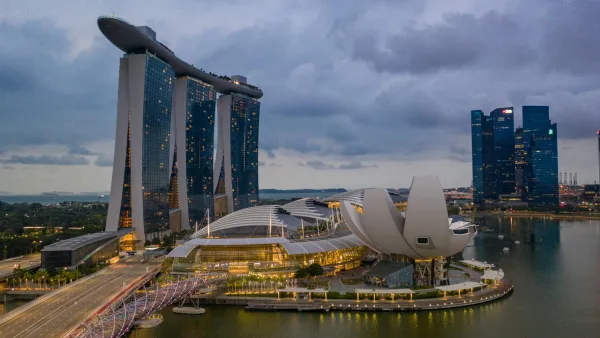
Singapore is fast becoming the region’s key testing ground for global luxury brands, as sales surge and demand holds steady despite a wider slowdown in major markets, Bloomberg reported.
“Singapore has proved to be a very stable place for wealthy people. That has created a very strong local base for the luxury market,” Jonathan Siboni, founder and CEO of consultancy Luxurynsight, told Bloomberg.
The city-state now has over 240,000 millionaires. Median household income has increased for five consecutive years. This has created a strong local customer base for luxury goods, even as international tourists continue to spend.
From January to September 2024, retail spending by tourists reached $3.9b, up 5% year-on-year, driven by visitors from China, Indonesia, India and the US.
Luxury spending in the city-state is expected to grow 7% to $13.9b this year, outpacing regional shopping hubs including China and South Korea, as per data shared with Bloomberg by Euromonitor International. Only Japan posted comparable growth. The market is projected to return to its pre-pandemic peak of $14.7b by 2025.
Despite its small size and population of six million, Singapore ranked third in luxury store openings in 2023 among 32 Asia-Pacific cities outside mainland China, according to real estate firm Savills.
Singapore’s performance stands out in a global luxury landscape marked by weakening consumer demand and slowing economic growth, the report said.
Industry executives and analysts point to the country’s political stability, rising number of high-net-worth residents, and strategic location as key factors behind the continued strength in sales.
Luxury brands are also increasing their presence and tailoring experiences to affluent clients. At Marina Bay Sands, Italian label Marni opened its first local store last August. The mall now offers chauffeured buggies and private salons for exclusive previews.
According to Irene Ho, CEO of The Luxury Network Singapore, brands are increasingly hosting exclusive, invitation-only sales events several times a week as they shift toward more ultra-personalised shopping experiences.
New concepts are also being tested. Coach opened its first bar in Singapore in May, serving custom cocktails and street food in a heritage shophouse. Audemars Piguet launched AP Cafe at its boutique, blending fine dining with luxury retail. Raffles City introduced large-scale beauty activations featuring brands like Chanel, Dior and Gucci.
Whilst Singapore’s luxury market remains strong, policymakers face a balancing act. Rising inequality has triggered debate over wealth taxes and broader social support. There are concerns that further tightening could prompt some wealthy residents to move assets elsewhere, such as Dubai.
Source: Singapore Business Review
Share: